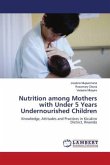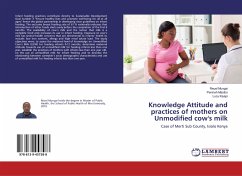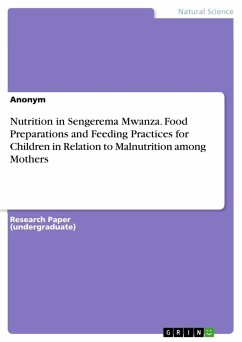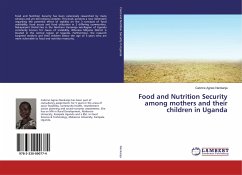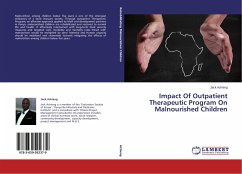This work is recommended to all students or researchers, those working in development agents, governments who wish to support nutrition or food security in developing countries. This work was motivated by the high levels of stunting in Zambia, which prompted the author to research on what could be the barriers to early treatment when a child showed growth faltering or ill health at community level.It is such issues that are discussed in this dissertation that need more research or attention on how communities can be assisted to take children to the health facilities for treatment or advise.Traditional norms do they play a role onhow soon a child is taken to the health facility. The role of community volunteers, belief systems in various communities and the general management of malnutrition in the facility and at home. This piece of work should promote deeper research in some of the areas highlighted to better find long lasting solutions in these hard to reach areas.
Hinweis: Dieser Artikel kann nur an eine deutsche Lieferadresse ausgeliefert werden.
Hinweis: Dieser Artikel kann nur an eine deutsche Lieferadresse ausgeliefert werden.


